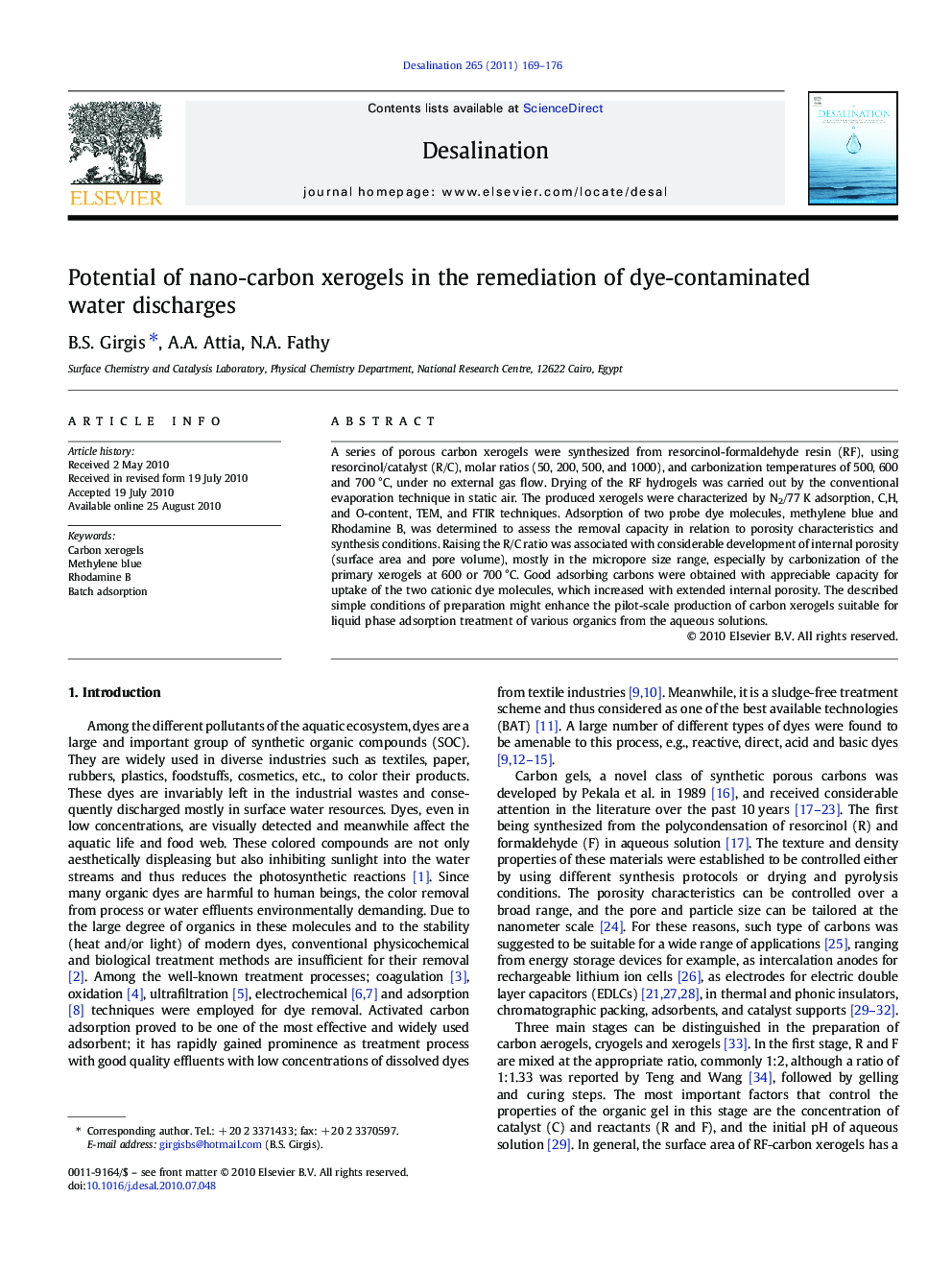| Article ID | Journal | Published Year | Pages | File Type |
|---|---|---|---|---|
| 625378 | Desalination | 2011 | 8 Pages |
A series of porous carbon xerogels were synthesized from resorcinol-formaldehyde resin (RF), using resorcinol/catalyst (R/C), molar ratios (50, 200, 500, and 1000), and carbonization temperatures of 500, 600 and 700 °C, under no external gas flow. Drying of the RF hydrogels was carried out by the conventional evaporation technique in static air. The produced xerogels were characterized by N2/77 K adsorption, C,H, and O-content, TEM, and FTIR techniques. Adsorption of two probe dye molecules, methylene blue and Rhodamine B, was determined to assess the removal capacity in relation to porosity characteristics and synthesis conditions. Raising the R/C ratio was associated with considerable development of internal porosity (surface area and pore volume), mostly in the micropore size range, especially by carbonization of the primary xerogels at 600 or 700 °C. Good adsorbing carbons were obtained with appreciable capacity for uptake of the two cationic dye molecules, which increased with extended internal porosity. The described simple conditions of preparation might enhance the pilot-scale production of carbon xerogels suitable for liquid phase adsorption treatment of various organics from the aqueous solutions.
